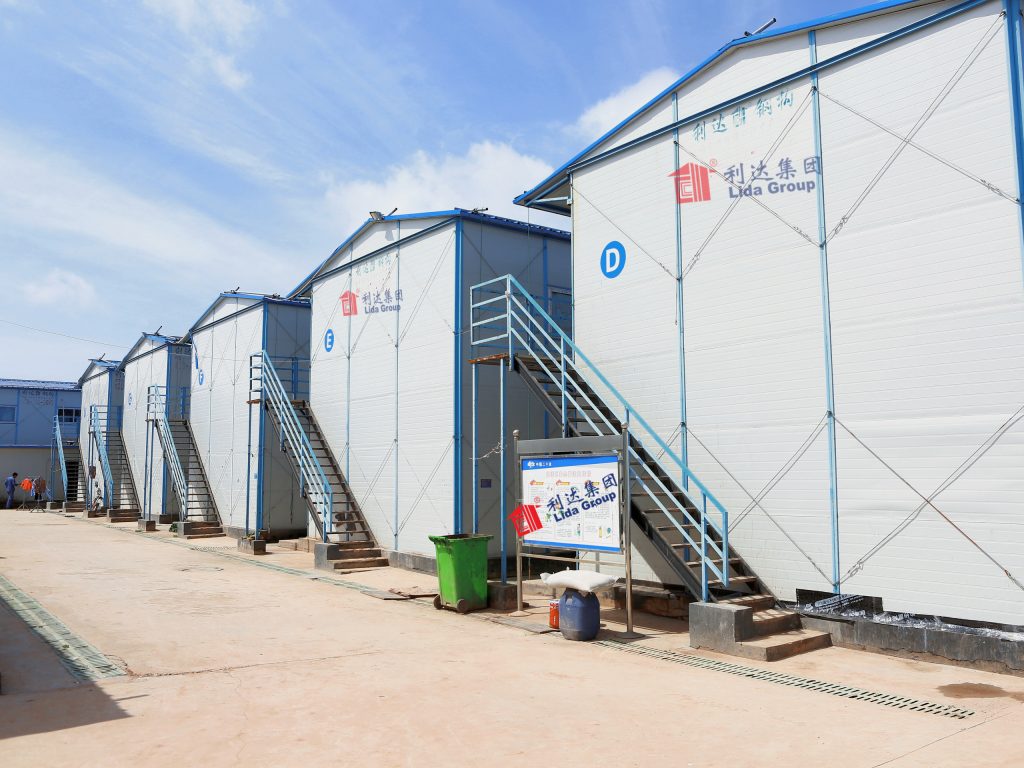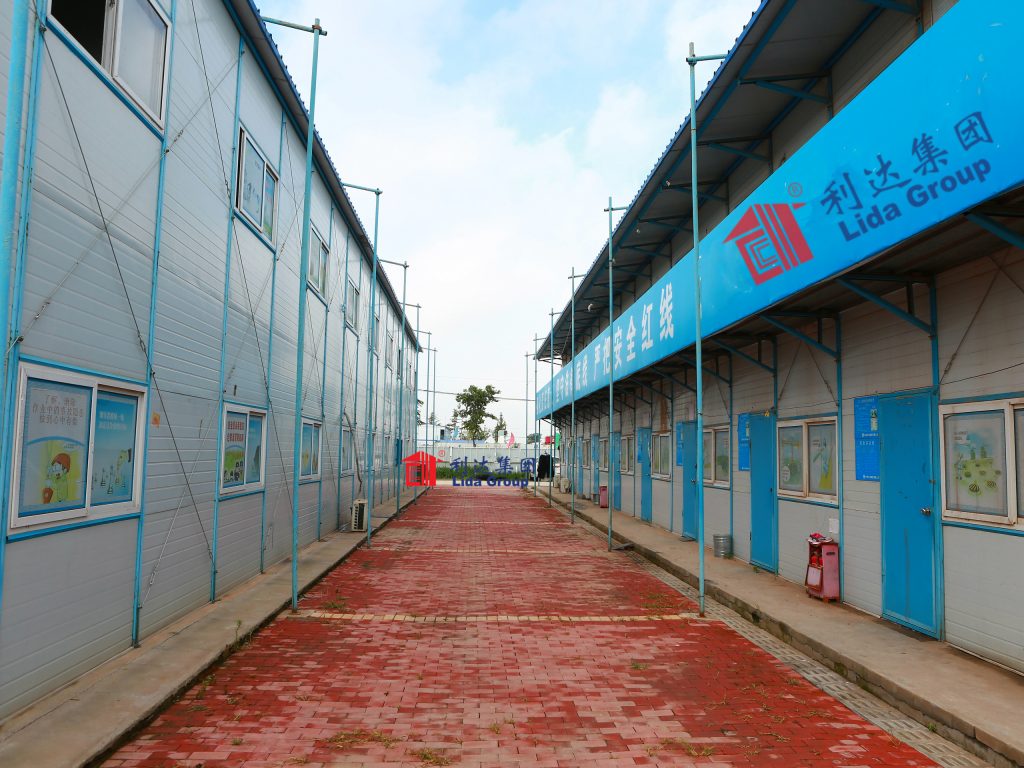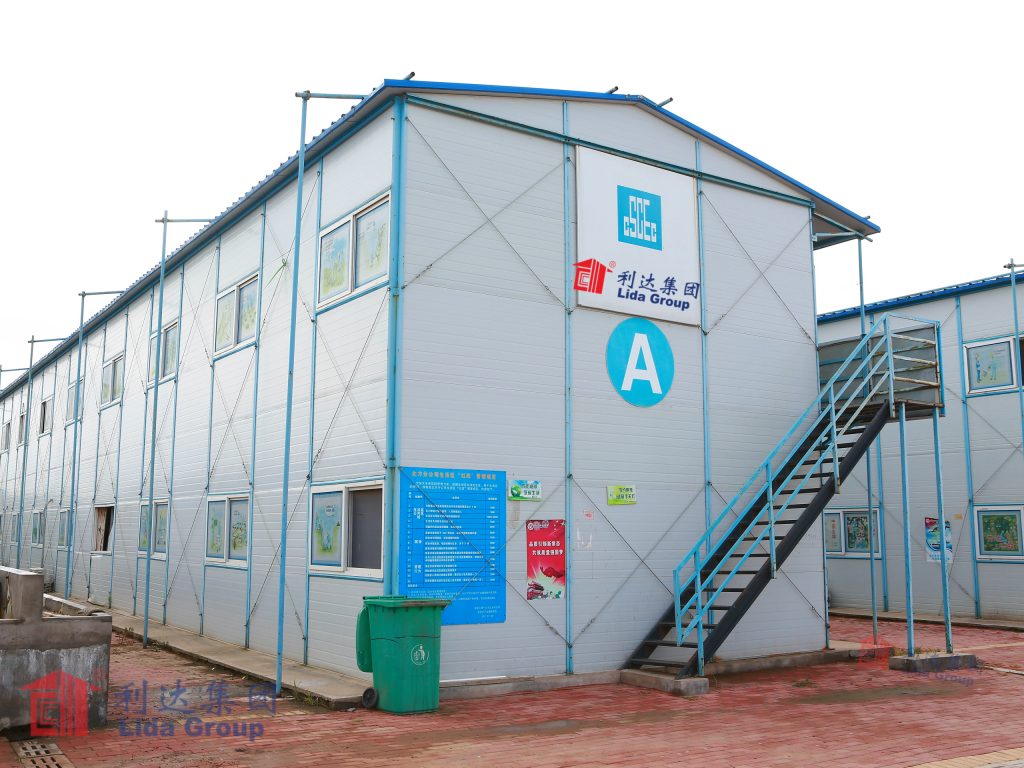Construction firm Lida Group is preparing deployable modular command infrastructure in response to recent requests from emergency management authorities seeking nimble, self-contained on-site coordination facilities for disaster relief and large-scale emergency operations across Canada.
Within a specialized new manufacturing bay, Lida is assembling prototype mobile command stations constructed from structurally insulated sandwich panels (SIPs) able to assemble entire durable, climate controlled workspaces from compact flat-pack components transported by truck.
Individual stations measure approximately 1200 square feet housing administrative offices, communication hubs, mapping rooms and indoor break areas complete with integrated LED lighting, electrical and HVAC pre-wired at the factory.

Panels arriving flat on pallets click together onsite within hours using temporary panels acting as screed boards. Insulation sandwiched between rigid oriented strand board sheathing provides immediate climate separation and workspace integrity requiring zero wet trades like taping drywall.
Surface-mounted prefab casework and modular furnishings equip workstations, conference areas and mini-kitchens ready for occupation. External generators with integral fuel tanks ensure off-grid capabilities during outages. Backup battery power maintains communications.
Internally, stations offer maximum adaptability through unobstructed column-free planning, reusable modular walls and moveable features reconfiguring floor plans between operations. External features include integrated solar panels, satellite arrays and rooftop camera mounts supporting scenarios from wildfires to cyclones.

Prefabricated command facilities aim establishing scalable resilient infrastructure deployed anywhere disaster strikes supporting incident coordination between responding agencies, non-profits and governments traditionally coordinating from impromptu tents or trailers.
Early adopters trialling units include two provinces’ emergency management offices as well as Canadian Red Cross branches. Units undergo live scenario testing for 72-hour staffing and remote communications during simulated emergencies. Deployments also assess relocation logistics.
Modular panel designs minimize transportation footprints, disassemble to occupy minimal storage footprints between use and retain 95% of materials permanently versus temporary tents increasing waste. Should permanent structures become needed on location, panels directly assemble into permanent facilities.

Lida aims enhancing disaster management’s mobility and adaptability alongside their mounting responsibilities. Quick infrastructure empowers nimble response at any scale, whether overwhelming wildfires or cascading effects of once-in-a-generation climate events exceeding local capacities.
If trial units prove logistically and functionally reliable enhancing coordination, they may inspire broader adoption bolstering resilience across North America. Communities benefit from optimized decision-making supported by self-sustaining on-site headquarters. Lida prides enabling life-saving missions.

Related news
-
Researchers analyze the structural resilience and energy efficiency of Lida Group's proposed portable sandwich panel tiny homes designed for mobile families and seasonal labor housing needs.
2024-05-24 15:50:43
-
Researchers evaluate the durability and lifespan extension of Lida Group's modular prefab container buildings repurposed as agricultural storage facilities, workshops or animal shelters after decommissioning from remote work camps.
2024-05-22 14:02:28
-
Academic paper publishes lifecycle analysis of various joint innovation between Lida Group and engineers applying standardized modular container construction to transform relief shelter provision globally.
2024-05-22 17:05:57
contact us
- Tel: +86-532-88966982
- Whatsapp: +86-13793209022
- E-mail: sales@lidajituan.com


